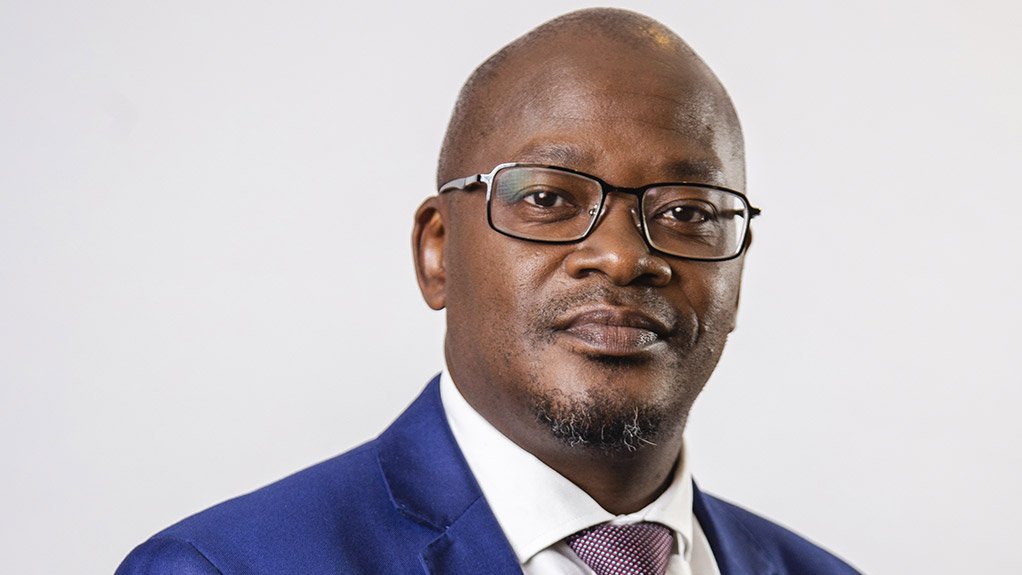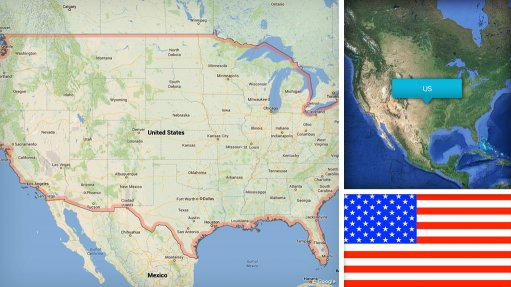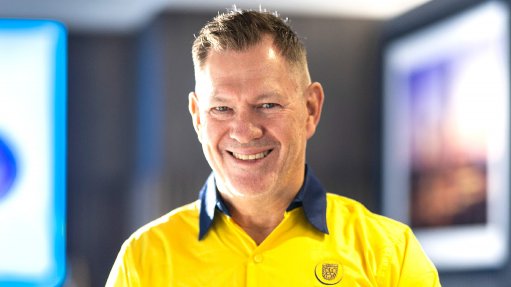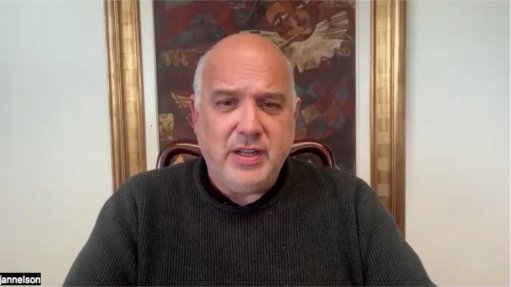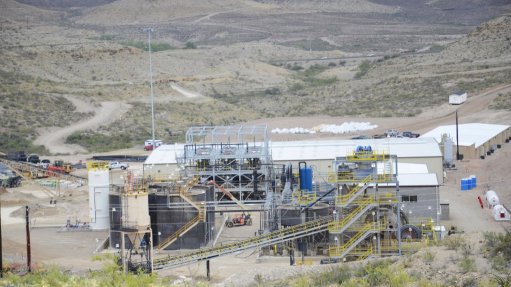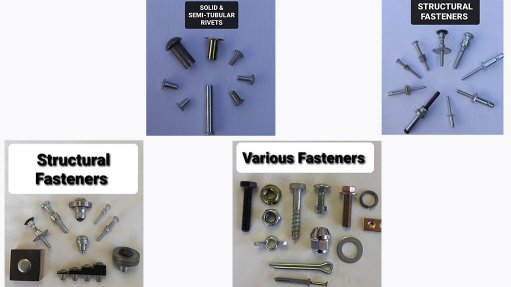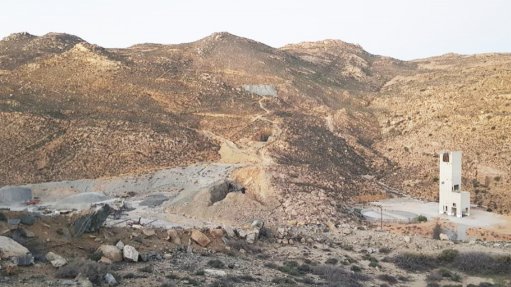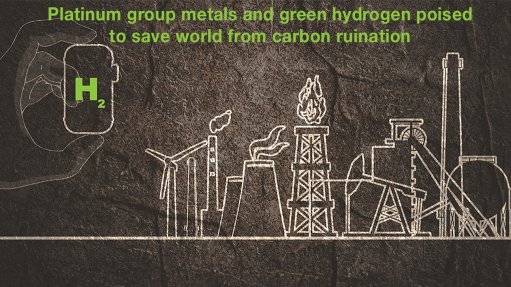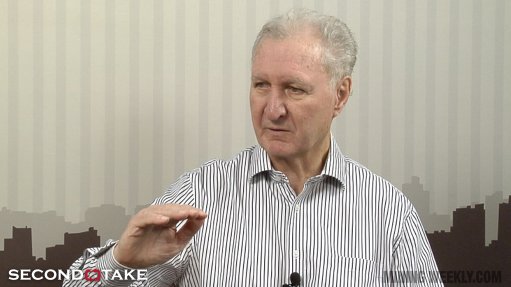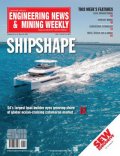The case for sustaining SA’s nuclear capabilities
In this opinion piece, South African Nuclear Energy Corporation acting CEO Ayanda Myoli outlines South Africa’s strategic nuclear capabilities and argues that they should be deployed in support of the country’s development.
South Africa has historically played a significant role in global nuclear development, which is important to put into perspective.
Former US President Dwight Eisenhower’s ‘Atoms for Peace’ speech, given in 1953, was the catalyst that resulted in the development of a programme in which the US transferred nuclear technologies, originally developed for military reasons, for civilian use. On the strength of its uranium resources, South Africa is one of the founding members and, therefore, has a permanent seat on the board of governors of the International Atomic Energy Agency (IAEA), which was founded in 1957.
A nuclear research reactor called the South African Fundamental Atomic Research Installation (Safari-1) was commissioned at Pelindaba, 15 km from Atteridgeville, on March 18, 1965. This reactor was fundamental to South Africa’s entry into the nuclear global sphere.
Subsequently, this resulted in the establishment of institutions such as the Koeberg nuclear power station, Ithemba Labs, the National Nuclear Regulator, the National Radioactive Disposal Institute and the Vaalputs nuclear waste disposal facility in the Northern Cape. South Africa remains a respected major role-player in the global nuclear industry.
The South African Nuclear Energy Corporation (Necsa) nuclear capabilities are of strategic importance in enabling the economic performance and meeting the regulatory requirements of existing nuclear facilities. As a State-owned entity (SOE) mandated to undertake nuclear technology research and development, Necsa will use and improve its capabilities, just as similar organisations have done in other countries, to:
- develop nuclear technologies to ensure that we remain competitive in the supply of nuclear medical and industrial isotopes;
- use our international quality standards (ASME III and ASME VIII engineering design and manufacturing) capabilities to enable the maintenance of existing nuclear facilities and the development of local industry to reduce dependence on foreign entities for nuclear technologies;
- cascade our international quality certification (ASME) capabilities to the local industry to enable localisation, industrialisation, economic growth, and job creation during the replacement of the Safari-1 research reactor and future nuclear new build.
When delivering his Budget speech in July, Mineral Resources and Energy Minister Gwede Mantashe emphasised the continuing role nuclear power would play in South Africa’s future, and that, “as we transition to a diversified, cleaner energy future, the country would acquire nuclear at a price, pace and scale it can afford”.
To support this, South Africa needs to maintain and expand its nuclear value chain development and capabilities, thus enabling the realisation of its political, economic, social, technological, environmental, and national and international legal obligations.
There is therefore a need for Necsa to use its research and development capabilities to assist the country to:
- transition to a diversified cleaner energy future;
- address water shortages by desalination of seawater;
- become globally competitive in the use of innovative technology for the design, manufacture and deployment of nuclear energy systems in accordance with nuclear energy policy; and
- ensure reliable energy and security supply.
Sociologist
David Fig’s article of July 16, 2019, titled ‘Shutting down SA’s nuclear future’, is devoid of proper nuclear historical perspective and the vital role Necsa currently plays in the economic development of this country and globally. There is no doubt that Fig is an accomplished environmental sociologist and publisher. It is therefore surprising that he would write such a flawed article that is also demoralising to young aspirant professionals in the nuclear industry.
It would have been more relevant had Fig provided an opinion on Necsa’s future role after the finalisation of the Integrated Resource Plan 2018 (IRP), which is due at the end of September. Necsa cannot act on an IRP 2018 that has not been approved by Cabinet. The IRP 2018 is still being reviewed and it does not make sense to conclude that South Africa no longer ascribes to a future that excludes nuclear technologies.
Necsa’s strategy is guided and approved by government as its shareholder and the IRP defines the policy that will map out South Africa’s energy mix vision moving forward. Seemingly, Fig’s article does not assist in moving away from creating rivalries between energy technologies, and neither does it encourage South Africa as a developmental State to appreciate the benefits of widening the scope of nuclear technology development, in the absence of an approved IRP.
Relocation of Necsa or the ‘suitable pared-down’ section thereof, as is suggested by Fig’s article, is irrational. The siting and licensing, and relocation to an alternative site, are impractical, as Necsa’s existing research reactor, radioisotope production facilities and fluorochemicals production facilities already possess such. Licensing the Council for Scientific and Industrial Research or any other research or academic institute to handle Necsa facilities is a far-fetched dream.
In addition, it is common globally that the legal entities responsible for generating radioactive waste and those responsible for final disposal of the waste are separate. To this end, the National Radioactive Waste Disposal Institute Act (No 53 of 2008) became effective on December 1, 2009, endorsing the establishment of the National Radioactive Waste Disposal Institute (NRWDI). The waste management responsibilities between Necsa and NRWDI are properly defined and managed.
Fig’s opinion article suggests that South Africa and its SOE like Necsa, which is mandated for nuclear research and technology development, should forget about such opportunities. He further proposes that we should not even take note of the benefits being realised by similar entities in other countries.
South Africa should appreciate the strategic nuclear capabilities it already has in Necsa and leverage these capabilities in the best interests of the country, to benefit the future of South Africa.
- Myoli is the acting CEO of the South African Nuclear Energy Corporation
Comments
Press Office
Announcements
What's On
Subscribe to improve your user experience...
Option 1 (equivalent of R125 a month):
Receive a weekly copy of Creamer Media's Engineering News & Mining Weekly magazine
(print copy for those in South Africa and e-magazine for those outside of South Africa)
Receive daily email newsletters
Access to full search results
Access archive of magazine back copies
Access to Projects in Progress
Access to ONE Research Report of your choice in PDF format
Option 2 (equivalent of R375 a month):
All benefits from Option 1
PLUS
Access to Creamer Media's Research Channel Africa for ALL Research Reports, in PDF format, on various industrial and mining sectors
including Electricity; Water; Energy Transition; Hydrogen; Roads, Rail and Ports; Coal; Gold; Platinum; Battery Metals; etc.
Already a subscriber?
Forgotten your password?
Receive weekly copy of Creamer Media's Engineering News & Mining Weekly magazine (print copy for those in South Africa and e-magazine for those outside of South Africa)
➕
Recieve daily email newsletters
➕
Access to full search results
➕
Access archive of magazine back copies
➕
Access to Projects in Progress
➕
Access to ONE Research Report of your choice in PDF format
RESEARCH CHANNEL AFRICA
R4500 (equivalent of R375 a month)
SUBSCRIBEAll benefits from Option 1
➕
Access to Creamer Media's Research Channel Africa for ALL Research Reports on various industrial and mining sectors, in PDF format, including on:
Electricity
➕
Water
➕
Energy Transition
➕
Hydrogen
➕
Roads, Rail and Ports
➕
Coal
➕
Gold
➕
Platinum
➕
Battery Metals
➕
etc.
Receive all benefits from Option 1 or Option 2 delivered to numerous people at your company
➕
Multiple User names and Passwords for simultaneous log-ins
➕
Intranet integration access to all in your organisation



